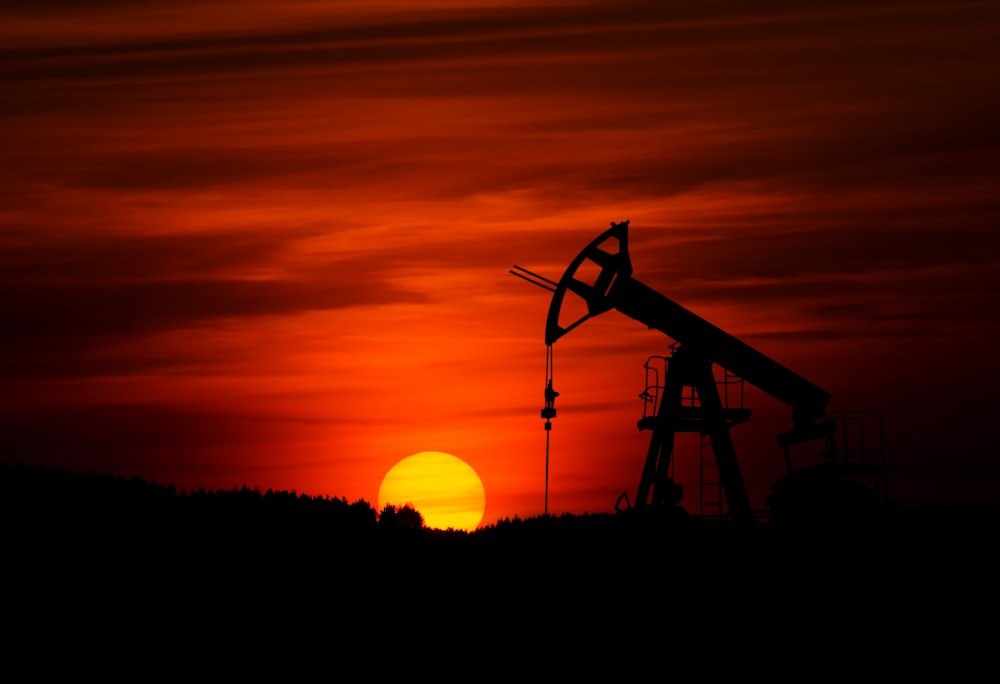Energy Report: Middle East Tensions Rising
Oil prices are rising, hitting the highest level in Brent crude since May of 2019 as tensions between Iran and Israel are a lot more dangerous than we knew. The Wall Street Journal reported that Israel has targeted at least a dozen vessels bound for Syria and mostly carrying Iranian oil, out of concern that petroleum profits are funding extremism in the Middle East, U.S. and regional officials say, in a new front in the conflict between Israel and Iran.
The Journals says that “Since late 2019, Israel has used weaponry including water mines to strike Iranian vessels or those carrying Iranian cargo as they navigate toward Syria in the Red Sea and other areas of the region. Iran has continued its oil trade with Syria, shipping millions of barrels and contravening U.S. sanctions against Iran and international sanctions against Syria. Some of the naval attacks also have targeted Iranian efforts to move other cargo including weaponry through the region, according to U.S. officials. The attacks on the tankers carrying Iranian oil have not been previously disclosed. Iranian officials have reported some of the attacks earlier and have said they suspect Israeli involvement.
Image Source: Unsplash
This comes as Reuters reports that, “The United States repeated on Thursday it will not offer Iran unilateral incentives to attend talks about both sides resuming compliance with the 2015 Iran nuclear deal. “We will not offer any unilateral gestures or incentives to induce the Iranians to come to the table. If the Iranians are under the impression that, absent any movement on their part to resume full compliance with the (nuclear deal), that we will offer favors or unilateral gestures, well that is a misimpression,” State Department spokesman Ned Price told reporters.
For oil, this is another factor. The Biden administrations' desire to lift sanctions on Iran will not happen anytime soon. Israel is dead set against a sanction lifting as Iran continues to fight proxy wars in the region. The drone attack by the Iranian-backed Houthi rebels on a Saudi oil terminal is not exactly the way Iran can go and win friends and influence people.
The Wall Street Journal also reported that Platts is deferring a plan to include West Texas oil prices in its basket of Brent international crudes following pushback from the industry. The Journal says that prices of Texas oil were going to be included in assessments of Brent crude, the benchmark price underpinning the world’s most important commodity market, starting in July 2022. That has been delayed by data provider S&P Global Platts after the energy industry pushed back on key details, who would pay for freight costs. The proposed change was meant to reflect the growing importance of U.S. exports in global energy markets. The main cause for the delay is traders’ objections to the way Platts planned to handle freight costs as part of the shake-up. They pushed back against how the firm planned to address the cost of transporting crude from the U.S. Gulf Coast to northwestern Europe.
As oil prices surge, the big question is whether the U.S. shale oil producers will rise to challenge OPEC and cool global markets. This week U.S. production saw a surprise jump in production back to 1.5 million and the Energy Information Administration increased their U.S. production outlook as well. Yet there is still some doubt as to whether U.S. shale will rise back to its former glory. Bloomberg News is not so sure. They report that “Saudi Arabia’s bet that the golden age of U.S. shale is over appears to be a safe one -- for now, at least.” A round-up of data on shale drillers shows they are sticking to their pledge to cut costs, return money to shareholders and reduce debt. If they stay the course, it will validate the OPEC+ alliance’s high-stakes wager that it can curb output and drive crude prices higher without unleashing an onslaught of supply from U.S. rivals.
That is still a big “if,” one that is keeping the oil market on edge as crude’s rally makes it more tempting for shale producers to go back on their word. But the U.S. shale patch is showing little sign of a true comeback so far, and even a dramatic boost in activity would leave oil output below pre-pandemic levels until late next year. Drillers that have shown signs of straying from the script and boosting production have been punished by investors.
The Biden administration's drilling ban is helping restrain U.S. output as well. Reuters reports that "New Mexico’s Democratic Governor is pushing for her state to get a waiver from the Biden administration’s pause on new oil and gas leasing on federal lands, she said in a Zoom video recording seen by Reuters on Thursday. Speaking to the Greater Albuquerque Chamber of Commerce on Wednesday, Governor Michelle Lujan Grisham said she was “clearly concerned” about the policy and thought the state should receive an exemption because of its efforts to tackle climate change. “Create a program that gives credit to states that are well beyond where the federal government and other states are in terms of climate change initiatives, cleaning up the environment, curbing carbon emissions, and having an all of the above energy efforts,” Lujan Grisham told the virtual meeting. You do that, (and) New Mexico’s going to get an exemption, a waiver,” she said. Her staff met with officials at the Department of Interior to discuss this recently. The Department would not comment on the governor’s remarks.
Disclaimer: Make sure you get signed up for exclusive info and my Daily Trade Levels by calling Phil Flynn at 888-264-5565 or email me at more




